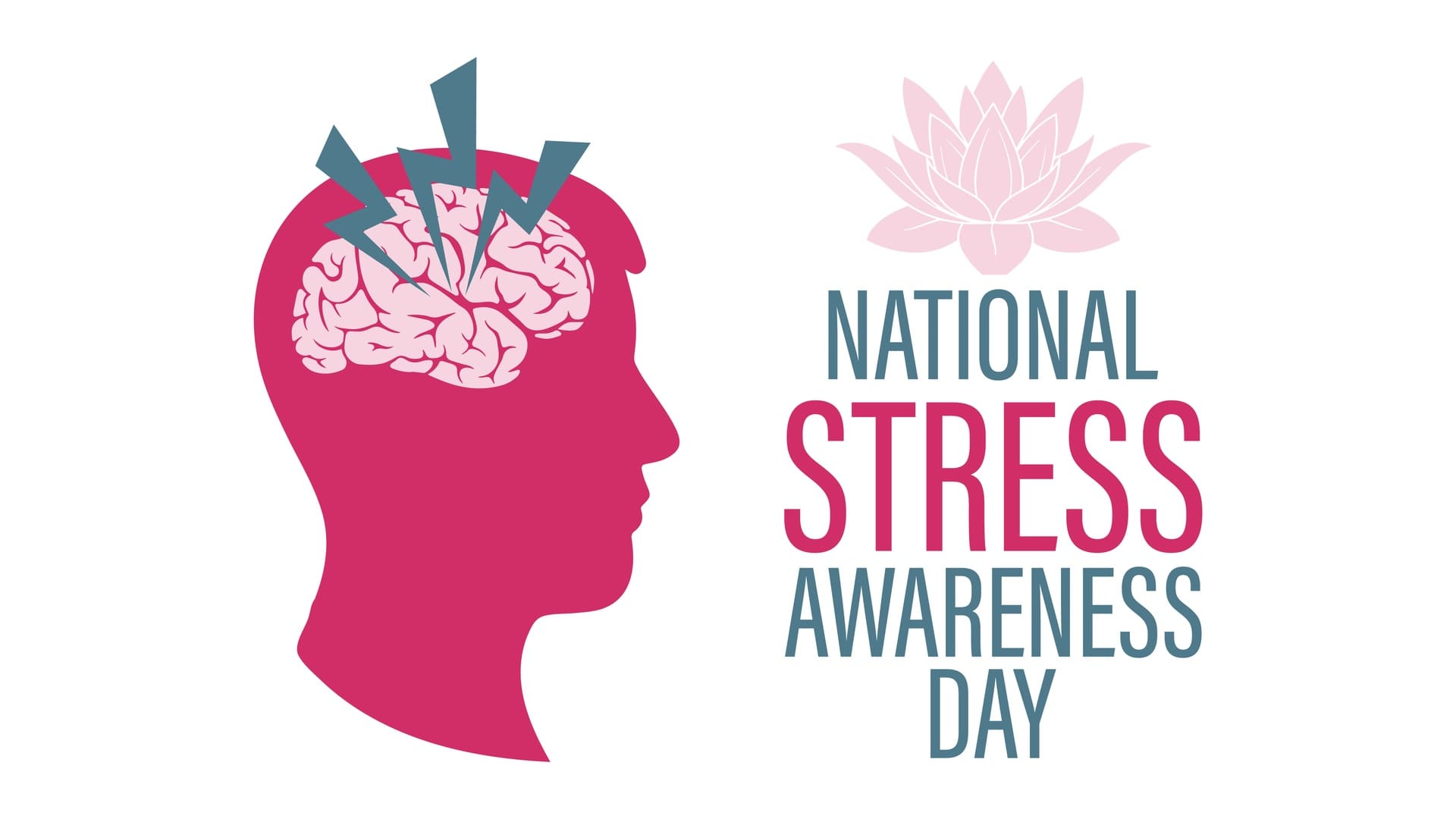Explain How Relaxing and Laughing Help Reduce Stress

Sarah Johnson, MD

When was the last time you truly laughed until your stomach hurt? A Mental Health AI can help you rediscover these simple, natural joys to lower stress and restore balance. Modern life constantly pushes us toward stress — deadlines, overthinking, and constant comparison trigger physical symptoms like rapid heartbeat and high blood pressure. Yet, some of the most effective ways to lower stress are simple and natural: relaxing and laughing. These are not mere distractions — they trigger your body’s natural ability to reduce stress, balance hormones, and restore a sense of well-being.
Why Stress Affects Your Mind and Body
When you feel threatened, your body immediately goes into "fight-or-flight" mode, which is a primal stress response. This survival mechanism is built into our DNA to keep us safe. Hormones like adrenaline and cortisol rise, sending energy to important tasks. Your heart rate and blood pressure rise to send oxygen to your muscles, and your senses become sharper. This is a great way to get away from danger right away, but in today's world, things like traffic jams, work deadlines, and social comparisons can set it off.
The problem starts when this state lasts for a long time. Your body is constantly flooded with stress hormones when you are exposed to these stressors all the time, which keeps it on high alert. This constant stress takes a heavy toll, causing harmful physical symptoms like high blood pressure, a weak immune system, anxiety, and tiredness. It turns into a vicious cycle in which the body's tools for staying alive start to hurt it. This is exactly where the power of relaxing and/or laughing comes in. They are not just things that make you feel good; they are also direct physiological enemies of the stress response, working to break this harmful cycle and bring balance back.
better with Soula

Support for every woman:
✅ A Personalized Plan to reduce anxiety and overthinking
✅ 24/7 Emotional Support whenever you need it Cycle-Aligned Mental Health Tracking — monitor your mood and symptoms in sync with your period
✅ Real-Time Insights into your energy levels and emotional state
✅ Bite-Sized Exercises to help you return to a calm, balanced state — anytime, anywhere
The Science of Relaxation:
How Relaxing Helps Reduce Stress
The relaxation response is your body’s built-in tool for stress relief. Through simple techniques like deep breathing, mindfulness, or gentle yoga, you send signals to the nervous system that the threat is over. Heart rate slows, blood pressure stabilizes, and cortisol levels drop. This natural process doesn’t just calm you — it helps your body recover from the physical wear and tear of ongoing stress. In short, you are manually changing your body from being on high alert to being in repair and recovery mode.
You can learn how to activate this response by using certain coping strategies. Deep breathing is the easiest and quickest way to do this. It directly affects the vagus nerve, which is one of the main nerves that calms the body. Other good ways to relax are to do muscle relaxation exercises, where you consciously tense and relax different muscle groups to relieve physical tension, or to spend quiet time in nature. You can actively improve your mood and fight the physical effects of stress by making a conscious effort to do things like walking meditation, listening to calming music, or gentle yoga. This will bring your body back to its natural state of balance.
The Healing Power of Laughter
While relaxation soothes the body, laughter heals it with energy and joy. A genuine laugh triggers endorphin release — natural chemicals that relieve pain, boost mood, and promote well-being. Laughter temporarily raises your heart rate, improves circulation, and afterward leads to a drop in blood pressure, creating a natural wave of calm. Genuine laughter is more than just a good feeling; it's a powerful form of laughter therapy techniques that can flood your body with stress-relieving endorphins.
Laughter heals the body — and sometimes it comes even when you're tense or overwhelmed, in a form called nervous laughter.
Laughter is good for your heart and blood flow, and it can make your heart rate and blood pressure go down for a short time after you stop laughing, just like light exercise. It also gives the diaphragm and abdominal muscles a great internal massage, which makes them very relaxed.
Laughter is a powerful way to reset your mind, so the benefits aren't just physical. It makes you change how you think for a short time, which breaks the cycle of worry and overthinking that causes stress. This change in thinking is a key part of developing a stronger, more positive attitude toward the problems that life throws at you. Studies have shown that laughter can lower the levels of stress hormones like cortisol and epinephrine while also increasing the activity of immune cells and antibodies. This makes your immune system stronger. Simply put, one of the best and most fun ways to deal with stress is to look for ways to laugh, like spending time with friends, watching a funny show, or doing fun things.
How Relaxation and Laughter Work Together
Relaxation and laughter amplify each other’s benefits. Relaxation techniques calm the nervous system, while laughter floods it with positive chemicals. Together, they not only reduce stress faster but also build resilience, making it easier to recover from future challenges. Combining calming practices with genuine laughter creates a powerful synergy; exploring entertainment-based stress relief like a funny movie can actively reduce stress while building emotional resilience.
Deep breathing and muscle relaxation are two examples of relaxation techniques that help calm the nervous system by lowering your heart rate, blood pressure, and mind. This makes a stable, peaceful base. Laughter builds on this by flooding the body with chemicals that make you feel good, getting rid of any leftover stress hormones, and improving circulation. Think of relaxation as cooling the engine and laughter as filling it with joy. Together, they not only stop the stress response, but they also push the body toward a state of good health.
This strong mix is necessary for developing long-term strength. A full set of coping strategies includes both calm relaxation techniques and happy social connection. Relaxation gives you deep rest, which heals the physical damage stress causes and saves energy. Laughter gives you a positive outlook, which strengthens your immune system and mental toughness. You build a strong and flexible defense system by making a conscious effort to spend time on both. This balance helps you find peace in the chaos and happiness again, which makes you better able to deal with whatever problems come your way.
Practical Ways to Add Relaxation and Laughter to Your Life
You don't have to change your whole life to use these powerful coping strategies. The best way to do this is to start with small, regular steps that you enjoy and don't feel like another task on your to-do list. The goal is to plan ahead for stress relief before you get too stressed out, so you can build resilience by having calm and happy moments every day. Laughter isn't just a mood booster; it's a powerful form of laughter mood benefits that actively triggers your body's natural relaxation response to combat stress.
To get started, here are some easy, doable tips:
- Begin with your breath: Just five minutes of deep breathing or a short breathing meditation can help you start your day off right. You can do this anywhere, anytime you feel tense, and it will directly trigger your relaxation response.
- Plan "Joy Breaks": Set aside time to relax or laugh on purpose. You could watch a clip from your favorite comedy show, listen to a funny podcast, or look at funny memes. Watching or reading comedy is a sure way to make people laugh.
- Look for Playful Company: Make an effort to be around people who are fun and make you laugh. Their playful energy spreads quickly and gives you a big boost of those feel-good chemicals.
- Mix Activities: Find ways to relax and have fun at the same time. While you're out in nature, listen to a funny audiobook. While you're watching a lighthearted show, do some gentle muscle relaxation stretches.
It's not how long you do it, but how often you do it that matters. Taking a few minutes each day to really laugh or breathe mindfully is a lot better for dealing with the physical effects of stress than waiting for a perfect vacation. Pick one small piece of advice that speaks to you and build from there.
Let Yourself Breathe, Laugh, and Reduce Stress Naturally
In a fast-paced world that often rewards productivity over peace, making time to relax or laugh is not a luxury — it’s essential self-care. Small, intentional breaks — a deep breath, a shared smile, a moment of laughter — change how your body handles stress and help you stay resilient. In a world that prizes productivity, making time for relaxation response through laughter isn't self-indulgence—it's essential maintenance for your resilience.
Taking care of your health by relaxing or laughing is an important habit that helps you be your best self for both your own goals and the people you love.
You don't have to learn complicated ways to relax or try to be happy all the time. The little things you do every day that you choose to do are what really matter. For example, taking a minute to breathe deeply at your desk, sharing a smile with a friend, or letting yourself laugh at a funny video. These moments are powerful ways to deal with stress that change how your body reacts to stress, calm the noise, and help you think more positively. So let yourself take a break, breathe deeply, and look for happiness. These small things are a strong way to show that your health and happiness are important to you, and they can change how you deal with stress more than you think.
FAQ
Q1: How does relaxing help reduce stress?
Relaxing activates the parasympathetic nervous system, lowering cortisol levels and helping your mind and body recover from daily pressure.
Q2: Can laughing really reduce stress?
Yes, laughter increases oxygen flow, boosts endorphins, and reduces tension, making it a natural stress relief method.
Q3: What are simple ways to relax and laugh during a busy day?
Try deep breathing, short mindfulness breaks, watching a funny video, or sharing a joke with a friend.
Q4: How often should I practice relaxation or laughter for stress relief?
Even 5–10 minutes a day of intentional relaxation or laughter can help reduce stress and improve mood.
Q5: Is relaxation or laughter better for stress relief?
Both work together: relaxation calms your body, while laughter quickly releases emotional tension.














